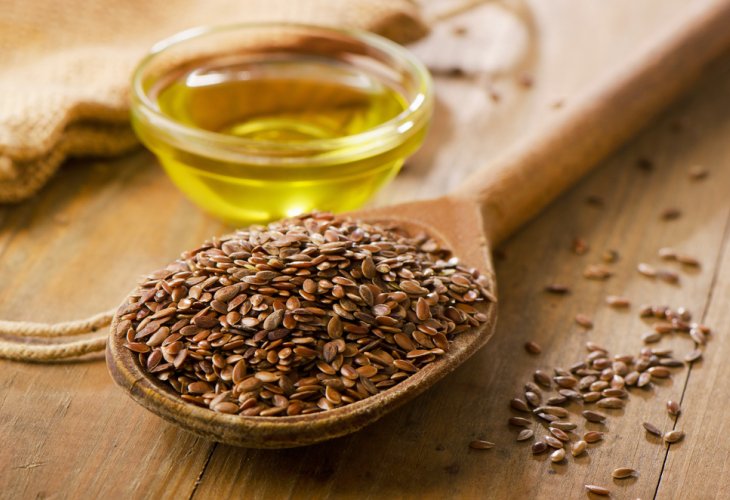Depression and Anxiety
Flaxseeds: Health Benefits, Side Effects, and Who Should Avoid Them
Discover How Flaxseeds Help Lower Cholesterol, Blood Pressure, and Hot Flashes

Despite being rich in essential nutrients like Omega-3 fatty acids, dietary fiber, protein, and vitamins E, C, B, and K, flaxseeds also come with a few drawbacks alongside their many health benefits.
Let’s Begin with the Benefits:
1. Help Regulate Blood Pressure
Studies conducted on over 60 individuals with high blood pressure found that daily consumption of flaxseed oil (in salads or cooked dishes) significantly improved and stabilized blood pressure levels.
2. May Help Prevent Depression
Japanese researchers discovered a direct connection between flaxseed consumption and reduced symptoms of depression in people struggling with this condition.
3. Lowers Bad Cholesterol (LDL)
If left unchecked, bad cholesterol can clog arteries and lead to serious health problems, including heart attacks. A recent study by researchers at the University of Iowa found that flaxseeds are effective in reducing- and in some cases eliminating- bad cholesterol levels in the blood.
4. Fights Inflammation
Flaxseeds contain a type of fiber called lignans, which help combat inflammation caused by plaque buildup in the arteries. Regular flaxseed consumption also contributes to the prevention of various heart diseases.
5. Reduces Hot Flashes
Hot flashes are a common symptom of menopause. However, a 2007 U.S. study found that consuming just two tablespoons of ground flaxseed per day reduced the severity of hot flashes by about 55%.
6. Supports Cancer Prevention
Studies on cancer patients have shown a connection between daily flaxseed intake and the slowing of tumor growth- particularly for skin cancer and prostate cancer- when done under proper medical supervision.
The Drawbacks:
1. Pregnant or Nursing? Avoid Flaxseeds
Several studies have indicated a potential link between flaxseed consumption during pregnancy or breastfeeding and adverse effects, including increased cancer risks during pregnancy. As a result, it’s recommended that pregnant or nursing women avoid flaxseeds.
2. Not Recommended for Diabetics
Flaxseeds can significantly lower blood sugar levels, and when combined with certain medications, may even drop them below the minimum required. Therefore, diabetics- and anyone with chronic conditions requiring regular medication- should consult a doctor before including flaxseeds in their diet.

